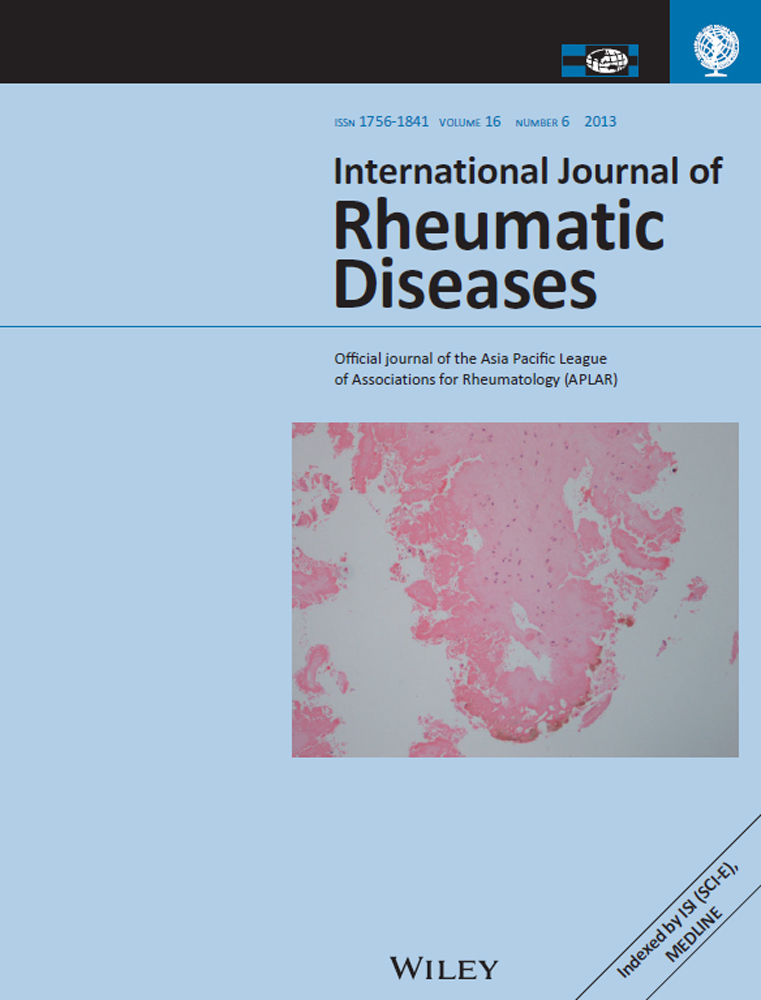Open label randomized controlled trial assessing the efficacy of mycophenolate sodium against other conventional immunosuppressive agents in active systemic lupus erythematosus patients without renal involvement
Abstract
Aim
Mycophenolate is an immunosuppressive agent which has been used in systemic lupus erythematosus (SLE) patients who have failed conventional therapy. However, the use of mycophenolate sodium in extra-renal SLE involvement has yet to be established. This study aimed to assess the efficacy of mycophenolate sodium in extra-renal SLE.
Methods
A total of 14 SLE patients without renal involvement were randomized either to receive mycophenolate sodium or other immunosuppressive agents. Patients were assessed monthly from baseline until week 16. Assessment parameters included SLE Disease Activity Index (SLEDAI) score, other organ-specific parameters and immunological parameters, including anti-double stranded DNA and C3. Steroid-sparing effect of mycophenolate sodium was also evaluated.
Results
Mycophenolate sodium produced a significant reduction in SLEDAI scores (P < 0.05) after 16 weeks of treatment. Mixed responses were detected in terms of organ-specific clinical changes. A positive trend was observed in improvement of immunological parameters and steroid dose reduction. No major adverse events were reported in this study.
Conclusion
Mycophenolate sodium is a safe alternative therapy in SLE patients with extra-renal involvement. The reduction in SLEDAI scores and the observation of no major safety concerns suggest that a larger prospective study of mycophenolate sodium in non-renal SLE is warranted.




